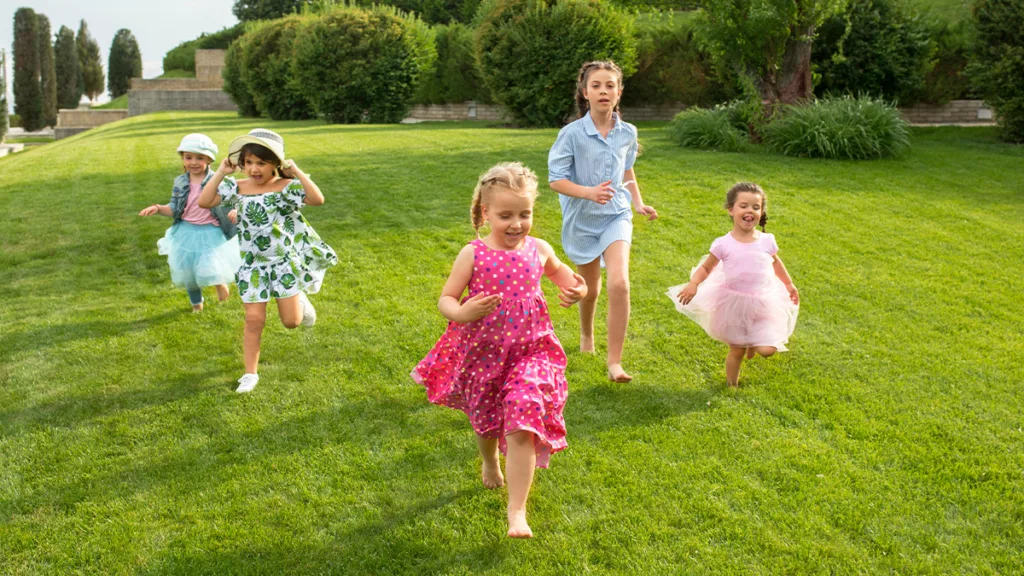While technology offers many benefits by being more accessible and convenient to use, children are spending an increasing amount of time on screens – whether it’s watching TV, playing video games, or using smartphones and tablets. This can have adverse effects on children’s health and development. However, before technology became advanced and tangible to our society, children spent their time outdoors engaging in physical activities and being in touch with nature. This provided numerous benefits that are essential for a child’s physical, emotional and cognitive development. This article will explore the importance of prioritizing outdoor play over screen time for children’s health.
The Rise of Screen Time
The prevalence of screen time among children has surged in recent years. According to the American Academy of Pediatrics (AAP), children aged 8-12 spend an average of 4-6 hours per day on screens, while teenagers can spend up to 9 hours. This significant amount of screen time can lead to a range of physical and psychological issues, including:
Obesity: Sedentary behavior associated with screen time can contribute to weight gain and obesity. Children who spend more time on screens such as watching TV, or playing videogames and consoles, are less likely to engage in physical activities, leading to decreased energy expenditure.
Childhood obesity is a serious health issue with far-reaching consequences that can persist into adulthood. When children are overweight or obese, they are at a higher risk of developing a range of health problems prematurely, which can have long-lasting effects on their well-being, such as Hypertension, Type-2 Diabetes, can exacerbate hormonal imbalances in girls such as Polycystic Ovary Syndrome (PCOS), increase the wear and tear of joints and ligaments, and increase the risk of respiratory issues such as Obstructive Sleep Apnea (OSA).
Sleep Problems: The blue light emitted by screens can disrupt the production of melatonin, an important hormone produced by the pineal gland located in our brain that regulates our sleep-wake cycles. Exposure to blue light, especially in the evening, can delay the onset of sleep and reduce overall sleep quality. Interactive screen activities such as video games and social media can be mentally stimulating and engaging, leading to increased arousal and making it difficult for children to wind down and prepare for sleep.
Eye Strain: Prolonged screen use can cause digital eye strain and potentially contribute to the development and progression of myopia (nearsightedness). Prolonged periods of focusing on screens at a close distance can lead to elongation of the eyeball, causing light to focus in front of the retina instead of directly on it. Less time spent outdoors is associated with a higher risk of developing myopia.
Mental Health Issues: Excessive screen time has been linked to increased rates of anxiety, depression, and social isolation in children. It can also negatively impact self-esteem and body image, especially when children are exposed to unrealistic portrayals of life and appearance on social media.
Click here to join our WhatsApp channel
The Benefits of Green Time
Spending time outdoors and engaging in physical activities offers numerous benefits that are crucial for children’s health and development:
Physical Health: Outdoor play encourages physical activity, which is essential for maintaining a healthy weight and preventing obesity, improving cardiovascular health by enhancing blood circulation, and building strong muscles and bones, reducing the risk of osteoporosis later in life. Activities such as running, climbing, and playing sports also enhance motor skills and coordination.
Mental Health: Outdoor play and spending time in nature has been shown to reduce stress, anxiety, and symptoms of ADHD in children. Exposure to nature promotes relaxation provides a break from the constant stimulation of screens, and improves your overall mood.
Cognitive Development: Outdoor play stimulates creativity and imagination. It encourages children and their curiosity by allowing them to explore, discover, and learn about their environment, fostering problem-solving skills and cognitive development.
Social Skills: Playing outdoors often involves social interactions with peers, which helps children develop important social skills such as communication, cooperation, and conflict resolution. This encourages team-building activities, which are essential not only in childhood but also during adulthood.
Connection to Nature: Spending time in nature fosters a sense of connection to the environment, promoting environmental stewardship and a greater appreciation for the natural world.
Balancing Screen Time and Green Time
To ensure children’s health and well-being in today’s day and age, it’s crucial to find a balance between screen time and green time. Here are some strategies for parents and caregivers:

Set Limits on Screen Time: The AAP recommends no more than 1 hour of screen time per day for children aged 2 to 5 years and consistent limits for older children. Encourage screen-free zones and times, such as during meals and before bedtime.
Encourage Outdoor Activities: Create opportunities for outdoor play by taking children to parks, playgrounds, and nature trails. Also, Encourage activities such as biking, hiking, camping and playing sports.
Be a Role Model: Children are more likely to engage in outdoor activities if they see their parents, caregivers and siblings doing the same. Making outdoor play a family activity is a wonderful way to bond, stay active, and enjoy nature together. Make it a family tradition, something everyone looks forward to, such as exploring local trails, parks, or nature reserves, planning a lunch picnic at a nearby park, biking in family-friendly bike paths.
Create a Balanced Routine: Establish a daily routine that includes time for physical activity, outdoor play, homework, and screen time. Encourage children to take breaks from screens to engage in other activities.

While screen time has become an integral part of modern life, it’s essential to prioritize green time for children’s health and development. By encouraging outdoor play and setting healthy limits on screen use, parents and caregivers can help children reap the numerous benefits of nature and physical activity, ensuring a healthier and happier future.



















